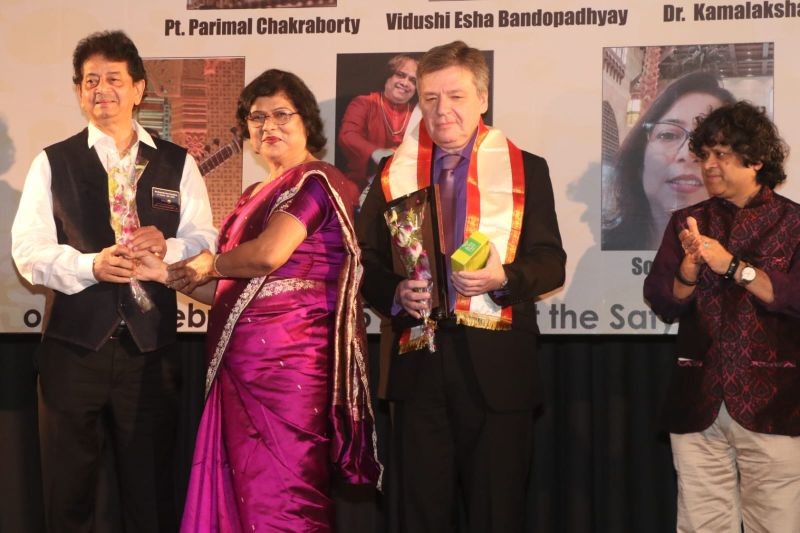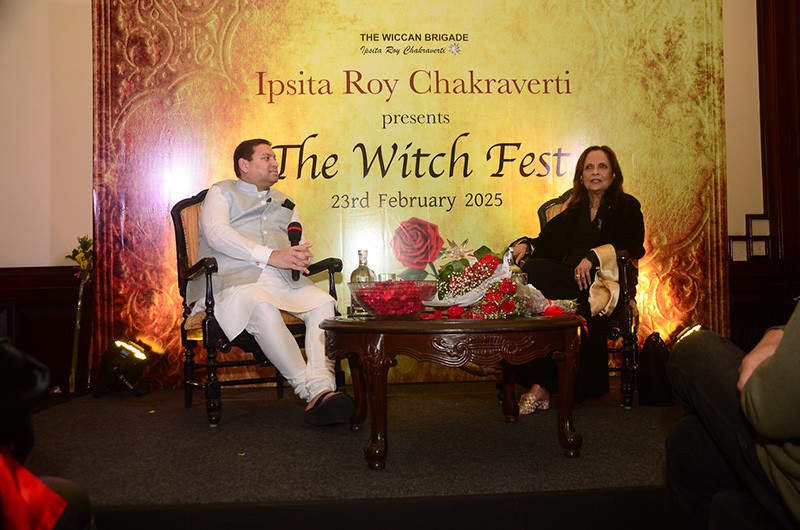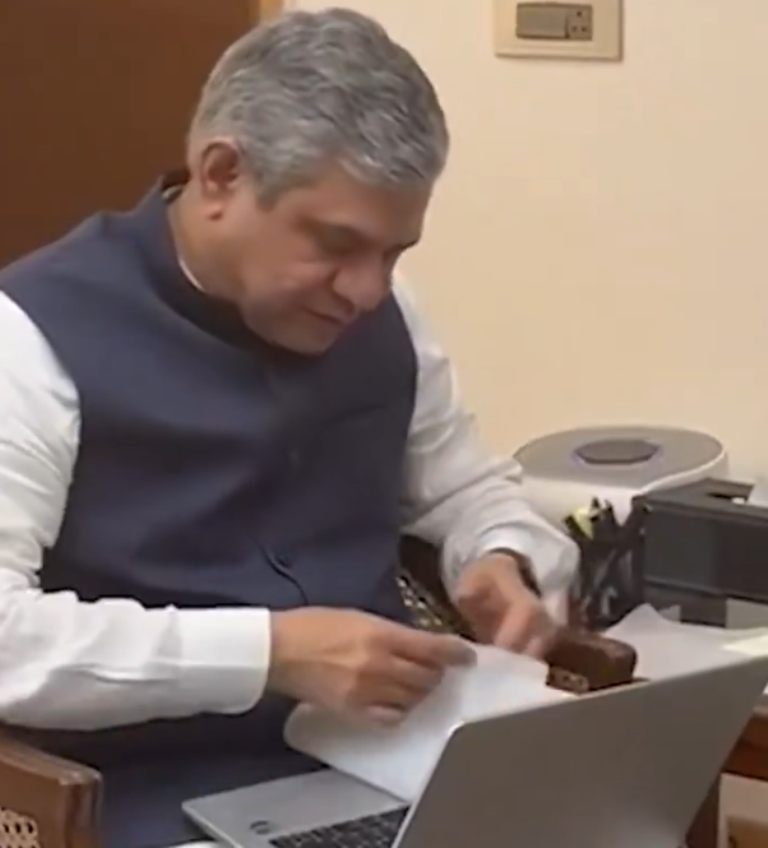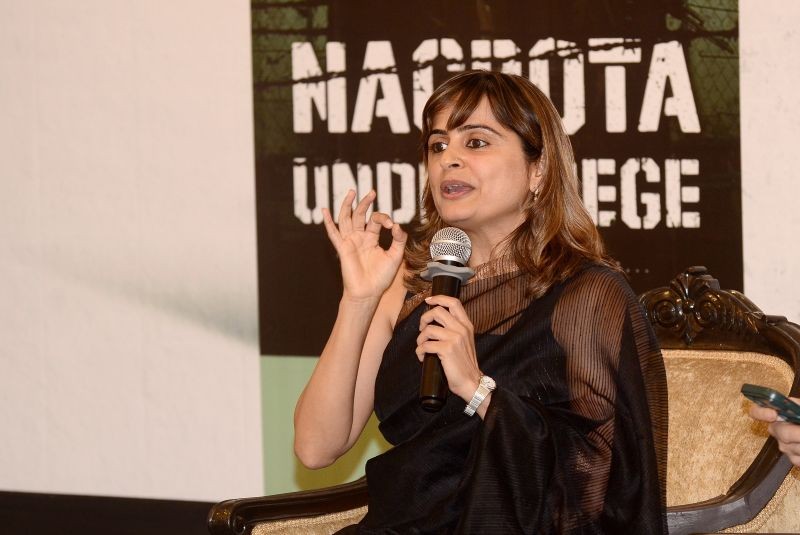Working for social development in India is a way of giving back, says RYTHM Foundation Head Santhi Periasamy
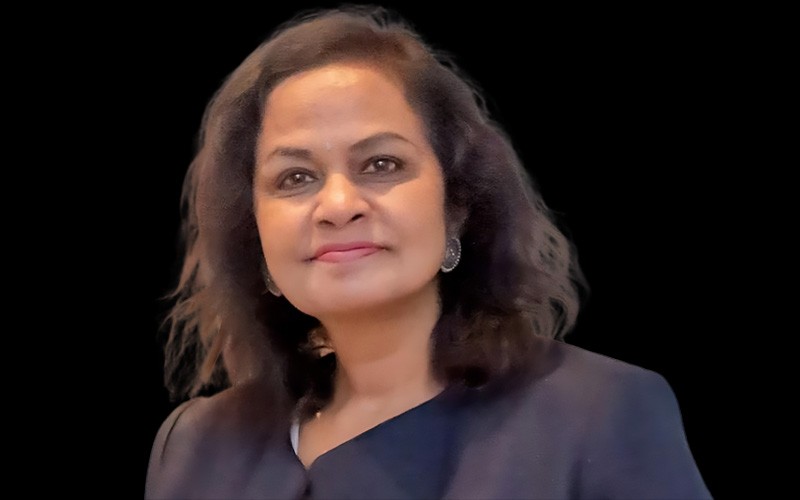
There is an adage: “Do not let your left hand know what the right hand is doing.” Thought to have its origin in faith, this tells us not to speak of our good deeds, so as not to appear boastful. However, there are times when good deeds are publicly rewarded, and they should be, not in order to inflate one’s importance but in order to inspire the rest of society. That is the recognition won recently by RYTHM Foundation, the social impact initiative of the global conglomerate QI Group of Companies.
Spelt “RYTHM” and not the usual “rhythm”, the Foundation’s name is an acronym for its mission: “Raise Yourself To help Mankind”.
In the context of two awards given to RYTHM Foundation at the recent ‘CSR & Sustainability Awards 2025’ in New Delhi, India — for its work in women’s empowerment and rural education — Sanchita Guha representing Connected to India speaks to RYTHM Foundation Head Santhi Periasamy, a Person of Indian Origin (PIO) based in Malaysia and with vast experience in the field of education leadership.
As someone who is, in her own words, “passionately committed to social equity and community development”, Periasamy tells Singapore-based news portal Connected to India what it means to her to receive these awards on behalf of the Foundation.
India holds a special place in my heart, and working towards its social development, particularly in empowering women and advancing education, feels like a way of giving back to my roots.
RYTHM Foundation Head Santhi Periasamy
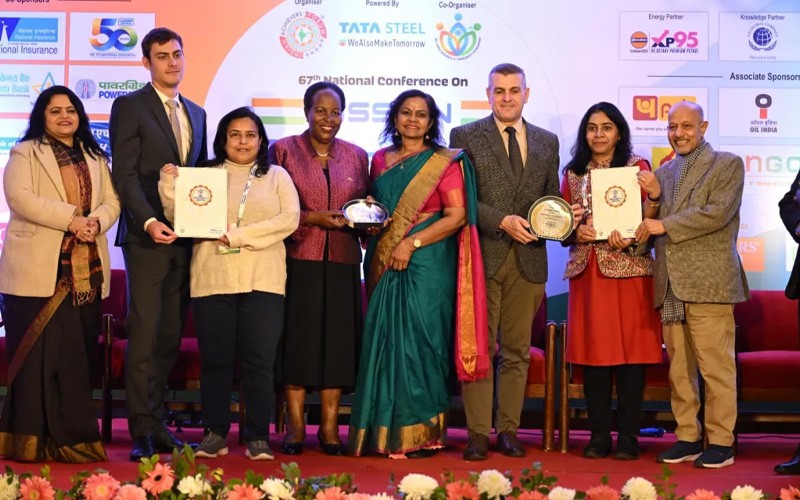 RYTHM Foundation gets two CSR awards in India. Photo courtesy: Facebook/RYTHM Foundation
RYTHM Foundation gets two CSR awards in India. Photo courtesy: Facebook/RYTHM Foundation● The Safer Cities for Girls project, a collaboration with Plan India: Recognised for transforming an urban resettlement space in Delhi to ensure the safety and empowerment of adolescent girls. The programme focuses on protecting girls while fostering opportunities for them to thrive in the settlement.
● The Enabling Foundational Literacy and Numeracy in Rural North Bengal initiative, developed with Parinaama Development Foundation: Received acclaim for improving literacy rates in rural communities, breaking the cycle of poverty, and enabling beneficiaries to access better opportunities.
Accepting the awards, Periasamy said at the New Delhi ceremony, “The awards reaffirm our commitment to driving social change through these and other projects. We share this recognition with our dedicated partners and the communities we serve, whose resilience and determination make our work possible.”
Excerpts from the interview of Santhi Periasamy with Connected to India:
● Congratulations to RYTHM Foundation on winning two awards at the ‘CSR & Sustainability Awards 2025’. As a Person of Indian Origin based in Malaysia, how involved have you been with these initiatives?
As the Head of RYTHM Foundation, I have been deeply involved in shaping and overseeing our initiatives in Women’s Empowerment and Education. These projects reflect our commitment to creating meaningful and lasting impact in communities, particularly for underprivileged women and children.
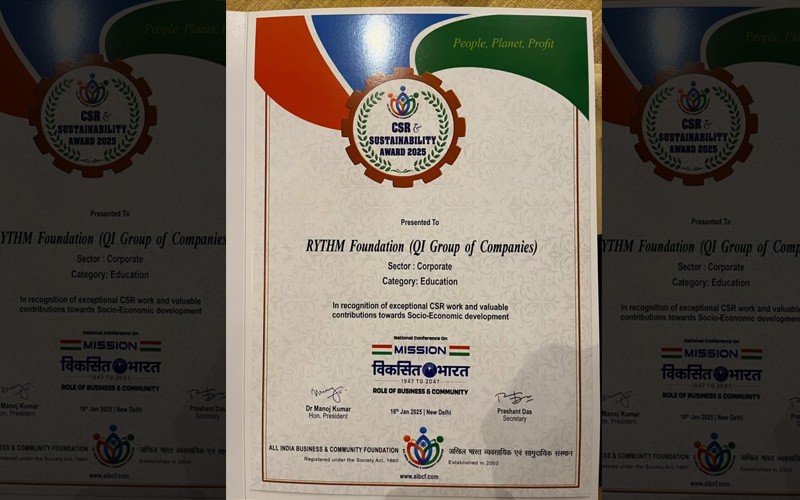 One of the two awards won by RYTHM Foundation. Photo courtesy: Facebook/RYTHM Foundation
One of the two awards won by RYTHM Foundation. Photo courtesy: Facebook/RYTHM FoundationWhile being based in Malaysia, I have worked closely with our teams in India to ensure that these initiatives align with our mission and deliver tangible results.
● What does it mean for you, at the very personal level, to be able to do something good for your country of origin, and then to have that deed recognised and awarded?
As a PIO, being able to contribute meaningfully to my country of origin is deeply fulfilling. India holds a special place in my heart, and working towards its social development, particularly in empowering women and advancing education, feels like a way of giving back to my roots.
Winning these awards was an emotional and proud moment for me. It reaffirmed that our efforts at RYTHM Foundation are making a real difference. More than personal recognition, it was a celebration of the impact we have created and a reminder that positive change is possible when we remain committed to a cause.
● Please tell us how you identified the focus regions for the Safer Cities for Girls campaign and the Rural Literacy Initiative.
The selection of focus regions for our initiatives is driven by research; need assessments; and strategic partnerships. For the Safer Cities for Girls campaign, while Delhi is often highlighted for safety concerns, our decision was based on data, ground realities, and collaboration with expert organisations working in this space.
Delhi’s infrastructure, socio-economic dynamics, and the urgent need for systemic interventions made it a critical starting point for driving change in urban safety for girls.
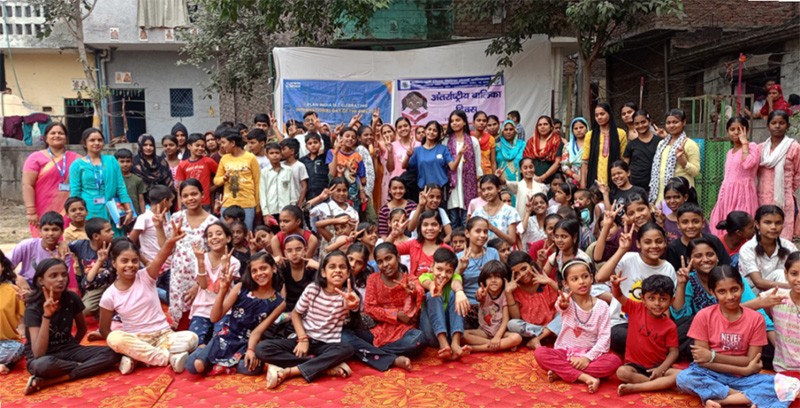 Delhi children and teenagers under the Safer Cities project. Photo courtesy: RYTHM Foundation
Delhi children and teenagers under the Safer Cities project. Photo courtesy: RYTHM FoundationBy focusing on North Bengal, we aimed to bridge these gaps and empower children with literacy and learning opportunities, ensuring that geography does not determine their future.
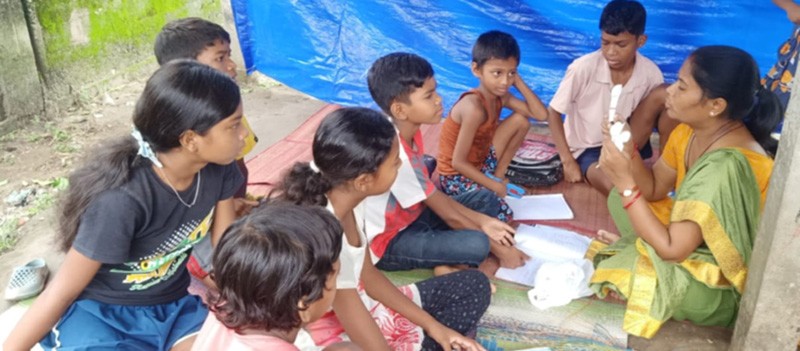 Foundational Literacy and Numeracy project in North Bengal. Photo courtesy: RYTHM Foundation
Foundational Literacy and Numeracy project in North Bengal. Photo courtesy: RYTHM FoundationIndia is both one of the most challenging and one of the most promising countries for CSR work.
The scale of socio-economic disparities, deep-rooted systemic issues, and the sheer diversity of communities make implementing impactful CSR initiatives complex. However, these very challenges also present immense opportunities for lasting change.
With the right approach — one that is community-driven, sustainable, and inclusive — CSR efforts in India can create transformative, long-term benefits.
Professionally, through RYTHM Foundation, I actively engage with initiatives in India, particularly in education, women’s empowerment, and community development. Our work there allows me to contribute meaningfully to the country’s progress, making my connection both emotional and purpose-driven.
● Could you tell us about a few more RYTHM Foundation initiatives in India?
We currently have two projects running. We will soon start a new project in Arunachal Pradesh and Meghalaya with Global Himalayan Expedition, titled “Empowering Remote Communities”, aiming to develop remote communities in Northeast India.
● Let us say it is in your power to make one big change in the education sector in India — a paradigm shift of sorts. What change would you make?
If I had the power to create a paradigm shift in India’s education sector, I would integrate life skills, critical thinking, and value-based education into the core curriculum — making education not just about academic success but also about building well-rounded, socially responsible individuals.
Too often, education is focused on rote learning and exam performance, leaving students ill-equipped for real-world challenges. By embedding life skills such as problem-solving, leadership, gender sensitivity, financial literacy, and emotional intelligence into everyday learning, we can nurture students who are not only knowledgeable but also capable of making informed decisions, adapting to change, and contributing meaningfully to society.
This shift would empower students, especially those from marginalised backgrounds, with the confidence and skills needed to break cycles of poverty, discrimination, and inequality — creating a generation that drives India’s progress in a holistic way.
● As to the Safer Cities initiative undertaken by RYTHM Foundation, we can see that it engages boys as well as girls. But what about engaging the family elders, especially women, who teach boys that they can get away with anything they do to girls? This is a widespread malady in India.
You are absolutely right — changing societal attitudes towards gender equality requires engaging not just young boys and girls but also the family elders, especially women, who often unknowingly perpetuate these biases.
Through the Safer Cities for Girls initiative, RYTHM Foundation recognises the critical role that families play in shaping mindsets, and we actively work towards breaking these generational cycles of gender discrimination.
We encourage conversations about gender roles, respect, and the long-term harm caused by toxic masculinity. By equipping these women with the knowledge and confidence to challenge outdated norms within their own families, we help shift perspectives at the household level.
● You have been in education leadership and management for a long time now. When and what made you move from a ministry position to the CSR sector, and in what way(s) is this work more fulfilling?
My transition from a ministry position to the CSR sector was driven by a desire to create direct, tangible impact in communities. While working in education leadership and management within the [Malaysian] government, I gained valuable insights into policy-making, systemic challenges, and large-scale programme implementation. However, I often felt constrained by bureaucratic processes that slowed down the execution of meaningful change.
Moving into CSR and social impact work allowed me to be more hands-on in designing and implementing initiatives that drive real transformation, especially for marginalised communities.
Through RYTHM Foundation, I can bridge policy with grassroots action, ensuring that resources reach those who need them most and that change is measurable and sustainable.
● How much do you travel for RYTHM Foundation across territories? Is India one of the countries you visit often?
As the Head of RYTHM Foundation, my role requires frequent travel across the regions where we operate, including India, Southeast Asia, and Africa. On an average, I travel several times a year, depending on project needs, key milestones, and partnership engagements.
India is one of the countries I visit most often because of our extensive work in women’s empowerment, education, and community development.
Project Evaluations – Visiting programme sites to assess impact, engage with beneficiaries, and understand on-the-ground challenges.
Stakeholder Meetings – Collaborating with local NGOs, government bodies, and corporate partners to strengthen and scale our initiatives.
Training & Capacity Building – Supporting our teams and partners with knowledge-sharing, leadership development, and sustainability strategies.
Community Engagement – Interacting with the people we serve, listening to their stories, and ensuring our interventions remain relevant and effective.
Each visit reinforces my connection to the communities we work with and fuels my commitment to creating sustainable, long-term impact.
● What has your main learning been from all these years in CSR work? Do you encourage everyone to volunteer, at least for some time?
One of the biggest lessons I have learnt from the years in CSR and social impact work is that real change takes time, trust, and sustained effort. Transformation does not happen overnight — it requires deep community engagement, continuous learning, and adapting strategies to evolving needs.
Another key lesson is that empowerment is more effective than charity. Rather than providing temporary aid, creating opportunities for people to uplift themselves leads to lasting impact.
And yes, I strongly encourage everyone to volunteer, even if for a short period. Volunteering opens your eyes to real-world challenges, builds empathy, and helps you understand your own privilege and responsibility.
Volunteering also shows that small efforts can make a big difference — whether it is mentoring a child, supporting a community project, or using your skills to help a cause. More than giving back, volunteering transforms the way we see the world and inspires us to be part of the solution.

